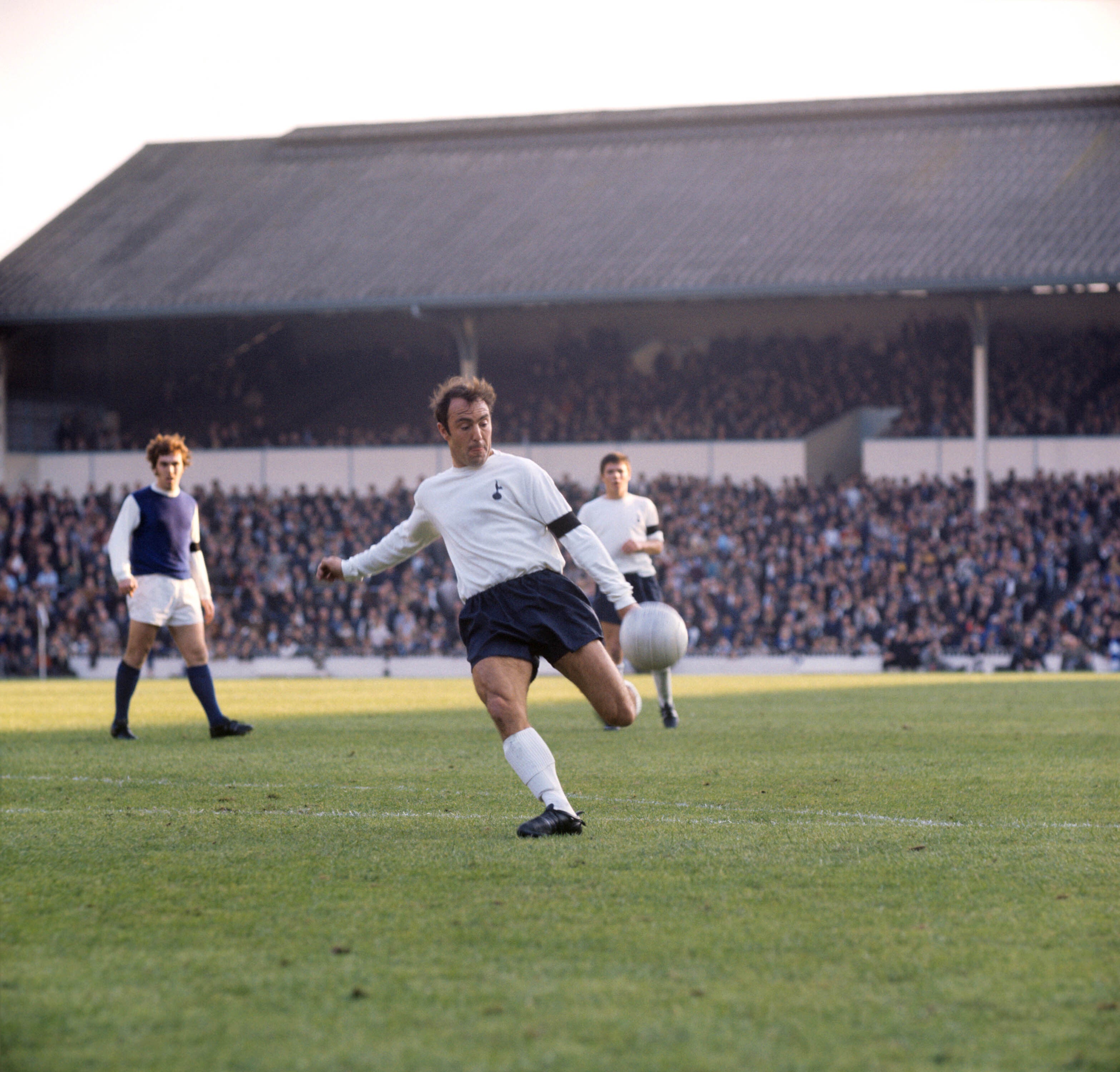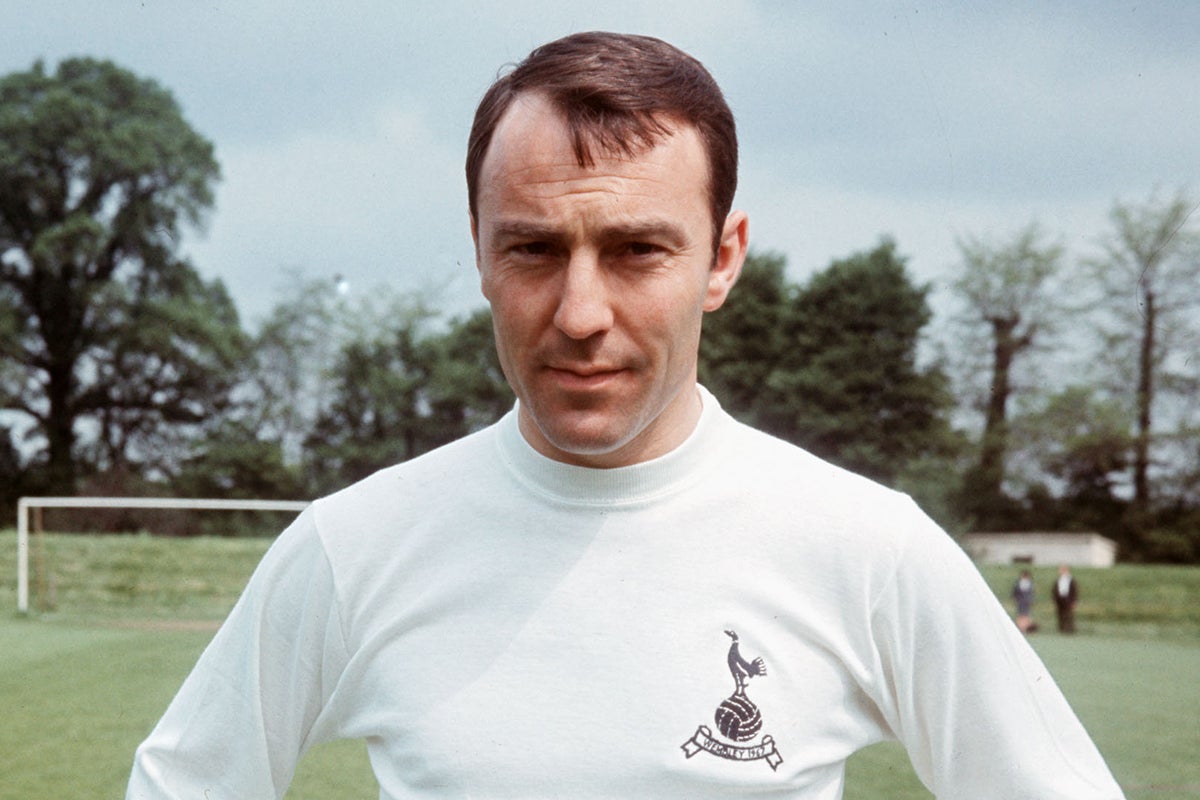Fearless Jimmy Greaves lived for the power and beauty of goals
Greaves understood that the most entertaining thing in football is a goal; the emotional rush it sends through the crowd underlines that truism, and he fed off the moment when the net bulged

Your support helps us to tell the story
From reproductive rights to climate change to Big Tech, The Independent is on the ground when the story is developing. Whether it's investigating the financials of Elon Musk's pro-Trump PAC or producing our latest documentary, 'The A Word', which shines a light on the American women fighting for reproductive rights, we know how important it is to parse out the facts from the messaging.
At such a critical moment in US history, we need reporters on the ground. Your donation allows us to keep sending journalists to speak to both sides of the story.
The Independent is trusted by Americans across the entire political spectrum. And unlike many other quality news outlets, we choose not to lock Americans out of our reporting and analysis with paywalls. We believe quality journalism should be available to everyone, paid for by those who can afford it.
Your support makes all the difference.There were lots of things said about Jimmy Greaves. Some claimed he was lazy. Others suggested that he was a “natural” goalscorer, as if you could be born with that exceptional talent. There were even people who criticised the striker, saying “all he did was score goals”.
All he did was score goals. Let that sink in. It is the game’s primary skill and some were prepared to use it as criticism of Greaves – or at the very least as a backhanded compliment.
There was an element of truth in the assertion. The east Londoner was a stripped-down predator. Everything he did had one purpose – to put the ball in the net. He was quick, particularly over short distances, but why waste energy on anything else when it could be used to score? Greaves idled, for sure, but it was not laziness: his engine was always turning over, waiting for that moment, that opportunity, when he could slip into gear and accelerate away from defenders. He was like a lion relaxing in the sun, watching the herd of impala pass by, refusing to move until he spotted a weak or sickly animal.
Greaves could, and often did, beat a rival but not with stepovers or feints. Speed, directness and a quick brain gave him the advantage. Ball-juggling was anathema to his one-track mind. The entire point of his kind of striker is kicking the ball into the net. Dropping back to link the play would have taken Greaves away from the danger zone, the only place that mattered. He understood that the most entertaining thing in football is a goal; the emotional rush it sends through the crowd underlines that truism. He fed off the moment when the net bulged. He lived for it. No one was quicker in a goalmouth scramble and he was the king of “ugly” goals. Greaves understood that all goals are beautiful.
His statistics are mindboggling. His goals – 466 in 661 appearances with Chelsea, AC Milan, Tottenham Hotspur, West Ham United and England – were scored in a different era. The age of the superclub was a long way off in the 1960s. Quality players were more widely distributed across clubs, the rules favoured defenders, brute force was the most common method of stopping attackers and the pitches were often gruesome. The inane question about whether players like Greaves could thrive in the modern era is framed the wrong way. Could today’s superstars have the same impact if sent back in time? The only certainty is that Greaves and his contemporaries would find the transition much easier.
Fitness would be an issue. Greaves was candid about his relationship with alcohol and its increasingly destructive impact on his life. In 1978, when news of his addiction was about to hit the newspapers, he was appalled. At that point he decided to take control of the narrative - and his life - and admit his shortcomings instead of hiding from them.

Confronting your problems in public was not so easy in the 1970s, when it was considered a weakness to confess any weakness. Self-reflection was still regarded as vulgar and indulgent. Greaves was fearless on and off the pitch and rebuilt his life in the face of disapproval.
Football and television brought redemption. Saint and Greavsie was a groundbreaking show for ITV. Ian St John – who died earlier this year – and Greaves had an easy chemistry where the former Liverpool forward was the more grown-up foil to Greaves’ mischievous joker. The whole “he’s a natural” discourse began anew but as in football, Greaves worked hard to hone his skills in front of the camera. He had the knack of making difficult things look easy: neither scoring nor presenting are as simple as they look.
The affable persona was real. It disguised a sharp mind. When he talked about football, it was possible to understand a little about why he was a great goalscorer. He knew the game, its nuances and its patterns. That is what made him so dangerous in front of goal.
Was he lazy? He lulled defenders into a false sense of security and when they went to sleep, he was gone. Was he a natural? No, he was supernatural, inhabiting that space where a remarkable burst of pace meets an equally remarkable game intelligence. Was scoring the only thing he did? Who the hell cares about anything else? Greaves didn’t, and that’s what made him great.
Join our commenting forum
Join thought-provoking conversations, follow other Independent readers and see their replies
Comments